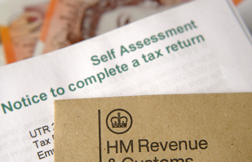If you’ve harboured ideas of going self-employed yourself but currently have the security of an existing employment, you won’t want to jeopardise that. So, ensure that you check your employment contract or speak to your employer’s HR team to make sure you won’t be breaking any conditions or covenants of your employment.
Providing that what you’re proposing to do as a freelancer isn’t in competition with your employer’s business and isn’t going to reduce your work performance level, most employers won’t have a problem.
Many new businesses begin as part-time ventures, often borne out of the individual’s interests, hobbies and lifestyles. Starting a new enterprise in a small, controlled way helps to manage the risks inherent in business. If your part-time business grows to the point at which you feel that it can support you, then you’ll probably consider making it full-time.







